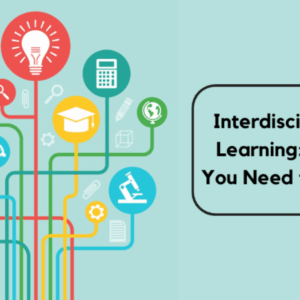Introduction
University life is much more than classrooms, textbooks, and exams. It is a dynamic journey of personal growth, social interaction, and professional development. At the heart of this multifaceted experience lies the division of Student Affairs — a critical arm of university administration that ensures students are supported not just academically, but emotionally, socially, and personally throughout their educational journey.
As student needs have evolved over time, so too has the role of Student Affairs. From overseeing housing and campus activities to supporting mental health, inclusion, leadership, and career development, Student Affairs has become a key contributor to holistic student success.
What is Student Affairs?
Student Affairs refers to a division within higher education institutions responsible for managing services, programs, and resources that support student development outside the traditional academic curriculum. It encompasses everything from residential life and student organizations to wellness services, diversity initiatives, and career support.
This department works collaboratively with faculty, administration, and external organizations to create an inclusive and empowering campus environment that nurtures student growth.
Core Functions of Student Affairs
1. Personal and Emotional Support
Universities are increasingly recognizing the importance of mental health. Counseling centers, wellness workshops, peer support groups, and crisis management services fall under Student Affairs, providing vital emotional resources.
2. Student Engagement and Activities
Student Affairs encourages participation in extracurriculars like clubs, student government, performing arts, and volunteer work. These activities build leadership skills, foster community, and enhance the overall campus experience.
3. Housing and Residence Life
Safe, inclusive, and well-managed living spaces are essential for academic focus and personal comfort. Student Affairs coordinates residential programming, dormitory assignments, and roommate mediation.
4. Career and Professional Development
Career centers help students explore career paths, prepare resumes, practice interviews, and secure internships or jobs. Workshops, networking events, and alumni connections are often facilitated through Student Affairs.
5. Diversity, Equity, and Inclusion (DEI)
Creating a welcoming environment for all students is a core mission. DEI initiatives promote understanding, respect, and equal opportunity regardless of race, gender, ability, or background.
6. Leadership and Personal Development
Programs that encourage leadership—like student organizations, mentorship schemes, and leadership training—equip students with soft skills vital for success in life and work.
Why Student Affairs Matters More Than Ever
Adapting to Changing Student Needs
Today’s students face increased academic pressure, mental health challenges, and uncertainty about the future. Student Affairs professionals are trained to understand and respond to these evolving challenges with compassion and strategic planning.
Creating Safe and Inclusive Campuses
In a time where inclusivity and safety are paramount, Student Affairs plays a vital role in ensuring that students from all walks of life feel accepted, supported, and empowered.
Building Student Retention and Success
When students feel connected to their institution through services and support systems, they are more likely to stay enrolled, perform better academically, and graduate on time.
Bridging the Academic and Personal Divide
Student Affairs connects the academic side of university life with personal development. It ensures students have a well-rounded experience that equips them not just for exams, but for the real world.
Evolving Strategies in Student Affairs
1. Embracing Technology
Digital platforms are now being used to streamline services, schedule counseling appointments, host virtual events, and engage students across various communication channels.
2. Data-Driven Decision Making
Using student feedback, analytics, and performance data helps Student Affairs departments tailor services and anticipate emerging needs.
3. Holistic Wellness Models
Modern student affairs emphasizes the “whole student” model, addressing wellness across physical, emotional, intellectual, social, and spiritual dimensions.
4. Cross-Department Collaboration
Close partnerships with academic departments, faculty, and administration ensure that student needs are met through a coordinated approach.
Challenges Facing Student Affairs
- Budget Constraints: Limited funding can restrict programs and staffing, particularly in public institutions.
- Mental Health Demand: Rising student mental health concerns are placing a significant burden on counseling centers and support teams.
- Inclusivity Gaps: Despite progress, there’s still a need to address systemic barriers that affect underrepresented and marginalized groups.
- Engagement Fatigue: With an abundance of online content and academic pressures, keeping students engaged outside the classroom can be challenging.
Conclusion
Student Affairs is more than a support service — it is the heartbeat of campus life. As universities strive to prepare students not just for academic success but for life beyond graduation, the role of Student Affairs has become more strategic, integrated, and vital than ever.
By focusing on emotional support, diversity, leadership, career readiness, and student engagement, Student Affairs ensures that students graduate not only with knowledge but with confidence, resilience, and a sense of belonging. In nurturing the whole student, it strengthens the entire university ecosystem and fosters a richer, more inclusive learning environment.
FAQs
1. What is the role of Student Affairs in universities?
Student Affairs supports students’ personal, emotional, and social development outside of academic instruction. It includes housing, counseling, career services, student activities, and wellness programs.
2. How does Student Affairs help with mental health?
Through counseling centers, wellness workshops, and crisis support, Student Affairs offers critical mental health services and promotes emotional well-being on campus.
3. What kinds of programs fall under Student Affairs?
Common programs include student clubs, leadership development, career services, DEI initiatives, health services, and residence life management.
4. Is Student Affairs involved in academic decisions?
While not directly involved in academics, Student Affairs collaborates with academic departments to ensure student support is holistic and connected to educational outcomes.
5. How does Student Affairs promote diversity and inclusion?
By organizing cultural events, supporting minority student groups, and enforcing inclusive policies, Student Affairs fosters a safe and welcoming environment for all.
6. Can Student Affairs help with career planning?
Yes. Career services, often part of Student Affairs, provide job search assistance, resume help, interview training, and internship opportunities.
7. How do students access Student Affairs services?
Students can usually access services through campus offices, university websites, digital portals, or scheduled appointments with advisors.
8. Do all universities have a Student Affairs department?
Most higher education institutions have a Student Affairs or Student Services division, though its structure and name may vary.
9. What are the benefits of student engagement in campus activities?
Involvement helps build leadership skills, social connections, time management, and personal confidence — all key traits for future success.
10. How is Student Affairs adapting to the digital age?
Many Student Affairs departments now offer virtual advising, online wellness resources, digital events, and app-based communication for student convenience.






